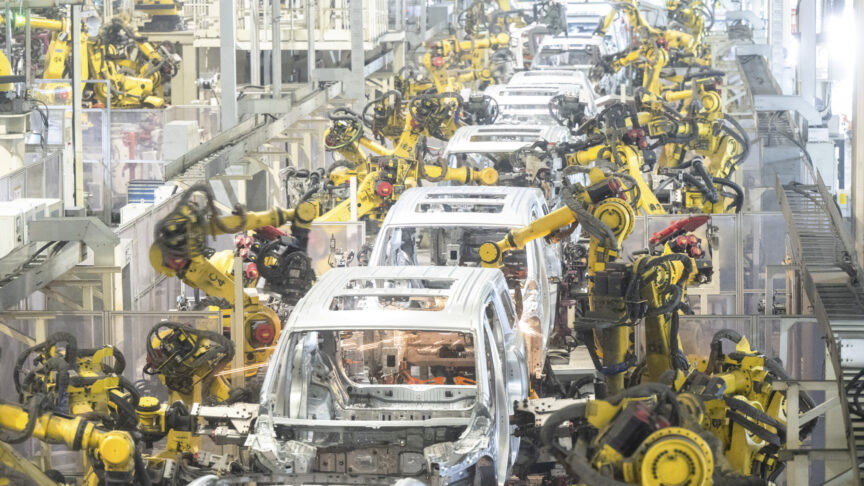The president goes to China
EU-China relations are maturing, and this is allowing a more frank and pragmatic approach to negotiations. The red carpet treatment for Herman Van Rompuy when he visited Beijing recently is testimony to this.
This article was first published by E!Sharp.
‘Who is the European President?’, a Chinese friend asked recently. Not a question one would have expected if Beijing had been visited last week by a President from Washington rather than Brussels.
Yet China did roll out the red carpet for Herman Van Rompuy on his first visit last week. The European President was duly received by the current leadership duo, Hu and Wen, and by the up-coming figure of Xi Jinping who is destined to succeed Hu late next year. The EU is, after all, China’s largest destination for its still booming exports.
With the EU’s free-trade pact with South Korea about to enter into force next month, does this mark an EU turn towards Asia following the US-focused agenda of recent years?
The EU has been behind the curve in its relations with China. Member states have been happy to take the pleasant bilateral business deals and leave just the ‘policy leftovers’ like human rights to the EU level.
Meanwhile, for a long time, the dominant EU view was a faith-based approach that China would become like us through development assistance and business engagement. China would become a complete market economy if we just did business with them and invested. China would make political reforms if we engaged and showed Beijing our open societies. This has not happened.
China’s internal reaction to the minor calls for a Jasmine Spring in China suggests instead that political reform is not able to pass a certain threshold. China’s economy is its own hybrid, with widespread market reform still combined with a state-controlled economy. The new realisation is that China will remain on its own separate path, and that Europe will have to negotiate with it as it is.
So a more realistic approach is coalescing inside Europe. The UK, France and Germany, which have seen China’s economy flying past them in the global rankings during the last decade, have started looking towards a joint EU approach as the way forward.
Van Rompuy is representing that new approach when he talks about reciprocity – a term which he evoked as not a ‘bad word’ last year in discussions among the EU leaders on a new approach to countries like China, Russia and the US. And Van Rompuy adopted the right tone in China. He clearly stated the values that the EU adheres to – and that China has signed up internationally – and pointed out that “China’s public image and reputation” will be shaped by such factors as “safeguarding human rights and the rule of law”.
Simultaneously, the new approach also implies that Europe should look after its own interests more effectively. Europe needs to get results – the financial crisis means that it no longer has the luxury of entering into negotiations with only concessions on its agenda.
For example, China wants the title of the world’s second-largest economy and demands market economy recognition by the EU, while at the same time enjoying the benefits of being classified a developing country. Yet that is increasingly being challenged by the EU, and it is not alone in doing so. While Van Rompuy was in China, new rules were hammered out in Brussels that removed the largest privileges of China’s developing country status – through the technical Generalised System of Preferences arrangement – as a way of underlining that China is on an equal footing with the EU and should negotiate as such. And the EU enforced its first anti-subsidy case on Chinese paper, targeting more specifically the role that subsidies play in strengthening Chinese market access abroad.
For Europe, the key annoyance in EU-China relations at the moment is the difference in access to markets. European companies still have many good investment opportunities in China yet irritants continue to lurk. The intellectual property rights of companies are not fully respected. Market access is dependent on hooking up with local partners in most sectors. It is difficult to get into the huge market of public business deals in areas like infrastructure.
By contrast, in this sector as well as in terms of general market access, Europe is – in line with its internal market principles – open also to foreign bidders. Yet asymmetry in market access, and the lack of reciprocal possibilities for EU businesses in China, causes real frustrations.
The new presidential face of the EU might lack visibility, yet it could embody a more down-to-earth, tough-skinned style of negotiation abroad – particularly if member states stand fully behind it.
The European Council on Foreign Relations does not take collective positions. ECFR publications only represent the views of their individual authors.


